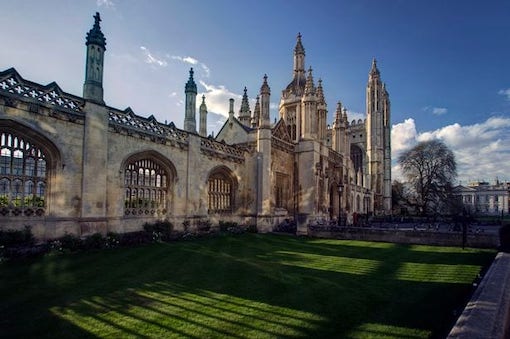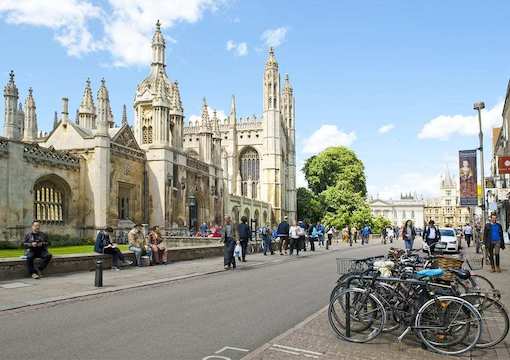Cambridge University
How the University Works
The University of Cambridge is a confederation of Colleges, Faculties and other institutions.
The University functions with a relatively small central administration, and with central bodies consisting of, and mainly elected by, the current academic personnel of the Faculties and Colleges.
A large part of Cambridge’s day-to-day administration is carried out by teaching staff on behalf of their colleagues, and the University’s governmental structure is essentially democratic.
As Cambridge approaches its 800th anniversary, it is not surprising that the way in which the University governs itself can appear complex. These pages outline the principal elements in these procedures in simple terms and define some Cambridge terminology. They are not an authoritative statement of the University’s Statutes, nor of the legal position in relation to the rights and duties of any body or bodies.
Faculties
Teaching and research in Cambridge is organised by a number of Faculties. In addition, a small number of bodies entitled Syndicates also have responsibilities for teaching and research, and exercise powers similar in effect to those of Faculty Boards. The Faculties and Syndicates cover the whole of the academic programme in the University, each being responsible for a broad subject area.
Cambridge University
Each Faculty is governed by a Faculty Board which is responsible for the provision of adequate teaching and facilities for research. The composition of each Board follows one of a number of different plans defined by Ordinance. Broadly speaking each Board consists of five classes of membership: Professors and Heads of Departments within the Faculty; members elected by the senior members (i.e. teaching staff) in the Faculty; junior members elected by the students of the Faculty; representatives of cognate studies; and co-opted members. The number of persons within each of these categories is defined by differing regulations for each Faculty. The Chairman and Secretary are elected by each Board from amongst their members.
Faculty Boards are responsible to the General Board; other Boards and Syndicates are responsible either to the General Board (if primarily for academic purposes) or to the Council.
A complete list of Faculties and Departments is given elsewhere (The University and its departments).
Departments
The Faculties have different organisational sub-structures which partly reflect their history and partly their operational needs. Administratively there is great convenience in dividing the work of a large Faculty into separate Departments but it carries the danger that the academic programme may become too compartmentalised. The Councils of the Schools play an important role in ensuring that the natural academic links between different Faculties are maintained and developed.
Most scientific Faculties are divided into Departments, of which there are about sixty. Each Department has a Head, who is in most cases a Professor or another teaching officer in the Department appointed for five years at a time by the General Board. The term ‘Department’ is also used of some academic sub-divisions in the Arts and Humanities, but these institutions are not generally as administratively autonomous as they are in the scientific Faculties. There is also a small number of Sub-Departments, which are distinct divisions of scientific departments.
Cambridge University Press
Cambridge University Press – The Press’s publishing policies derive directly from this constitutional status and from its unified organisational structure. Each of its new publications, from whichever international centre, has to be approved formally by the Press Syndicate.
Cambridge Colleges
Cambridge Colleges – There are 31 Colleges in Cambridge. Three are for women (New Hall, Newnham and Lucy Cavendish) and two admit only graduates (Clare Hall and Darwin). The remainder house and teach all students enrolled in courses of study or research at the University.
Cambridge International School
Cambridge International School – Here you will find some fundamental information regarding the best possible schooling for your children in the Cambridge area. The relation between home and school and how parents can get involved in a positive way. Students at CIS learn in a happy and stimulating environment and gain the ability to share as they learn, celebrating the diversity of fellow students with different experiences and backgrounds from around the globe.


